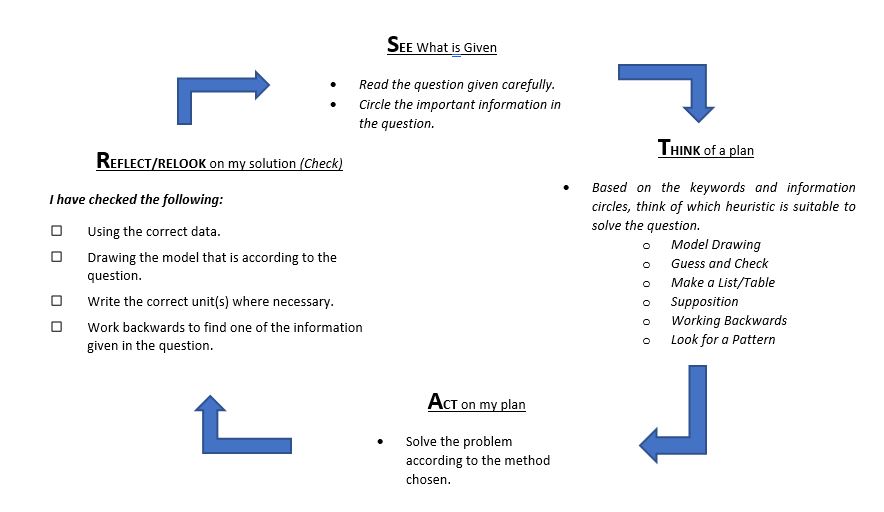Curriculum Approach
Mathematical problem solving is central to mathematics learning in the schools. It involves the acquisition and application of mathematics concepts and skills in a wide range of situations, including non-routine, open-ended and real-world problems.
The development of mathematical problem solving ability is dependent on five inter-related components, namely, Concepts, Skills, Processes, Attitudes and Metacognition.
Varied Teaching Approaches @ Ngee Ann
Model Drawing (A Pre-Form of Algebra)
The use of bar-models is one of the commonly used approaches in teaching problem solving in the school. Through the construction of a pictorial model to represent the known and unknown quantities and their relationships in a problem, students gain better understanding of the problem and are able to apply the appropriate techniques to solve it.
Thinking Routine
The Polya’s Problem Solving Techniques is another approach used to help pupils develop thinking routine when solving problem sums. This technique comprises of the 4 essential steps of understanding the problem, devising a plan on which heuristics skills to use, carrying out the plan and checking the results.


